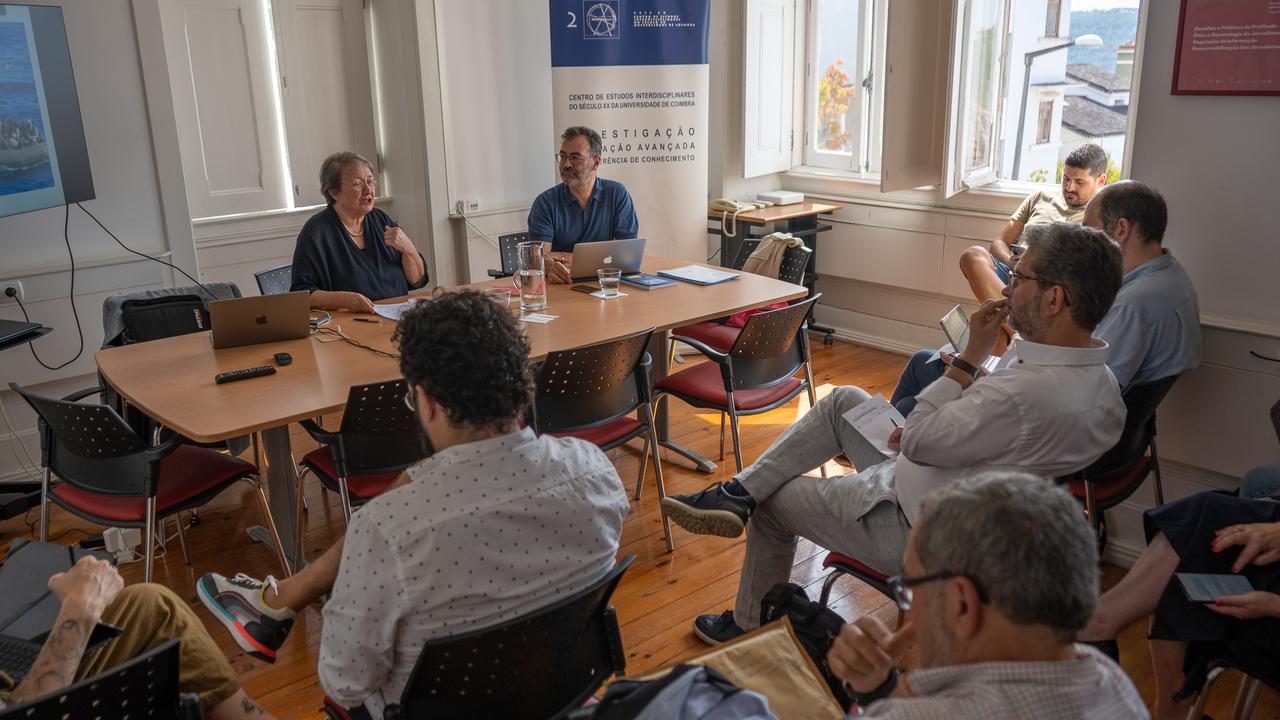“The meaning, tribulations and fate of universal cognitive institutions”, by Olga Pombo
The Inaugural Lecture marks the start of the academic year 2022/23 of the CEIS20 Doctoral Programme in Contemporary Studies.
The lecture will take place on Monday, 19 September, at 14:30 in the CEIS20 Seminar Room (1st floor). Olga Pombo will be the guest lecturer for this session, where she will give a talk on “The meaning, tribulations and fate of universal cognitive institutions”.
Olga Pombo holds a PhD in Philosophy from the University of Lisbon and was the founder and coordinator of the Philosophy Centre at the University of Lisbon. She is the founder and current director of the Kairos – Journal of Philosophy and Science (De Gruyter), a member of the Scientific Committee of the Reseau National des Maisons des Sciences de l'Homme (Paris), of the Centro Studi sulla Natura, L'Umano e l'Unita del Pensiero (Rome), and a member of the Honorary Committee of the Portuguese National Reading Plan (PNL 2027).
Below you will find a summary of the speech and a short biography of the guest speaker.
Summary
I will begin by discussing the necessity and original meaning of universal cognitive institutions, that is, the means that guarantee the production, preservation, transmission and legitimation of scientific knowledge. We will see how these institutional configurations, conditions of possibility for science, at the same time material and necessary, universal and transversal over time, tangible means that allow the invention of science and its constant development, have been challenged, disrupted, distorted, even corrupted, to such an extent that the very idea of science seems to have been distorted. Finally, we will try to interrogate some of the possible futures that are promised to us, taking into account the profound changes that these institutions are undergoing in our time.
Olga Pombo holds a PhD from the University of Lisbon and was awarded the title of Aggregate Professor in History and Philosophy of Science. She taught in the History and Philosophy Department of the Faculty of Sciences of the University of Lisbon (until 2016), of which she was President between 2007 and 2012. She was the founder and coordinator of the Philosophy Centre at the University of Lisbon from its creation in 2003 until 2016. She has coordinated several research projects and worked as associate researcher in several other national and international projects. She is a founding member of the “Société de Philosophie des Sciences” (Paris), honorary member of the “International Association for the Study of Controversies”, member of the Honorary Committee of the “National Reading Plan” (PNL 207), and currently is the Chair of the General Meeting of the Portuguese Logic Society. She was the founder and Programme Director of the FCT International Doctoral Programme in Philosophy, Technology, Art and Society (until 2016). She is the author and editor of numerous national and international publications and has collaborated and taught extensively in Portugal and abroad. Her interests lie in Modern Philosophy (especially Leibniz), Philosophy of Science (Unity of Science, Interdisciplinarity, General Epistemology, Scientific Image, Poincaré, Neurath, Bachelard), Philosophy of Language (Leibniz, Hobbes, Spinoza, Rousseau, Hegel), but also Encyclopaedism, Hypertext, Philosophy of School and, more recently, Science and Art, the teaching of which she introduced in Portugal. She is currently Director of the Transversal Research Centre of CFCUL, Director of the Journal “Kairos - Journal of Philosophy and Science” (De Gruyter), a member of the Scientific Committee of the “Reseau National des Maisons des Sciences de l'Homme” (Paris) and of the “Centro Studi sulla Natura, L'Umano e l'Unita del Pensiero” (Rome).




©Cláudia Morais

